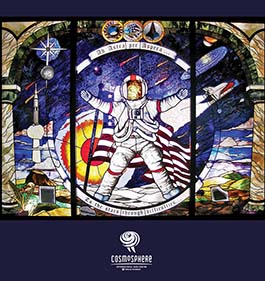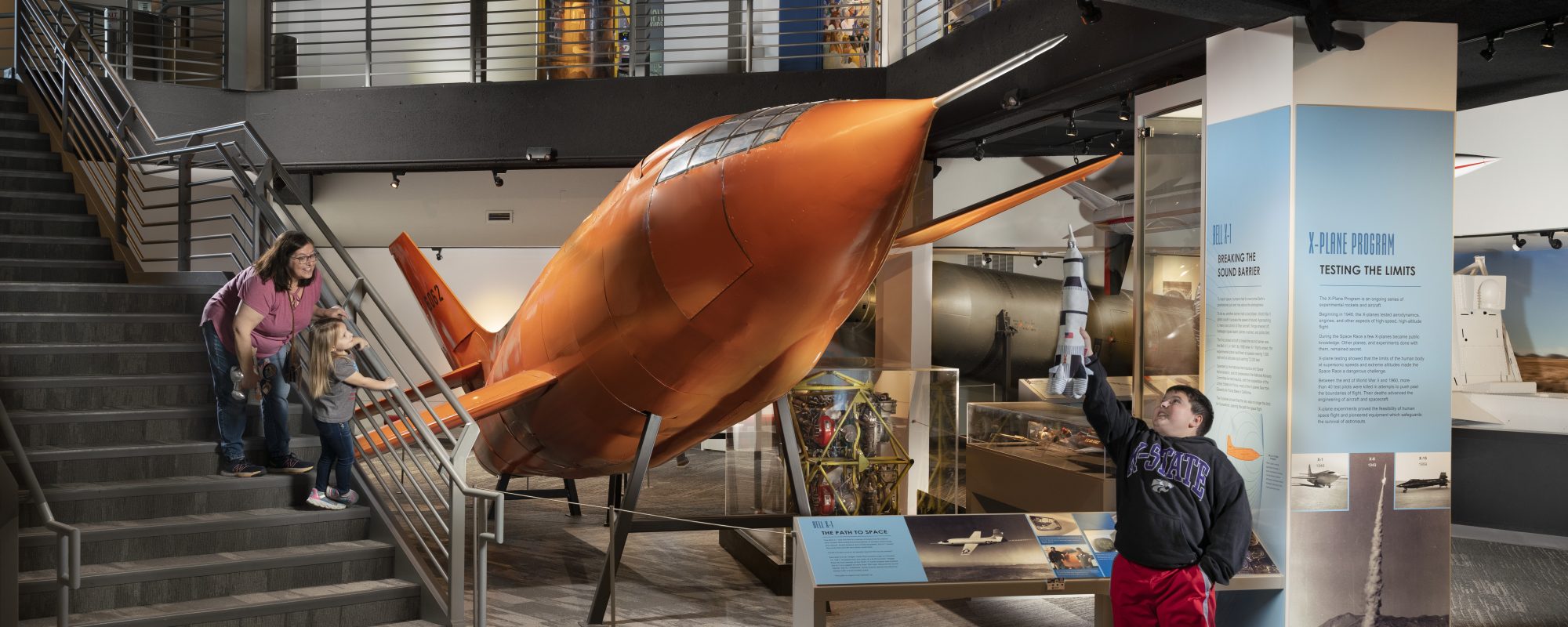On the final Thursday of each January, NASA honors the lives lost in the Apollo 1, Challenger, and Columbia disasters.
Take a moment to reflect today, NASA’s Day of Remembrance, and join the Cosmosphere in commemorating those men and women who sacrificed their lives to advance space exploration.
Watch NASA’s Day of Remembrance ceremony here.
The missions:
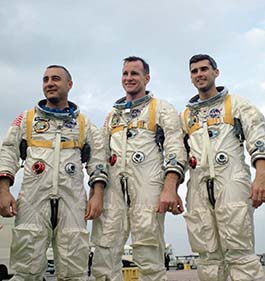
Apollo 1: When a fire broke out in the Apollo 1 spacecraft during a pre-launch test on January 27, 1967, we lost the three-man crew of Apollo 1.
Image: Apollo 1 Crew (l-r): Virgil I. Grissom, Edward H. White and Roger B. Chaffee. Image credit: NASA
STS-51L: A failed o-ring in the right solid rocket booster caused the space shuttle Challenger to explode 73 seconds after launch on January 28, 1986, claiming the lives of all seven aboard.
Image: STS-51L Crew (l-r): Mission Specialist Ellison S. Onizuka, Pilot Michael J. Smith, Payload Specialist Christa McAuliffe, Commander Francis R. “Dick” Scobee, Payload Specialist Gregory B. Jarvis, Mission Specialist Judith A. Resnik, Mission Specialist Ronald E. McNair. Image Credit: NASA
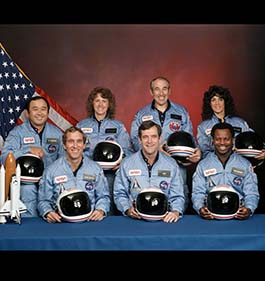
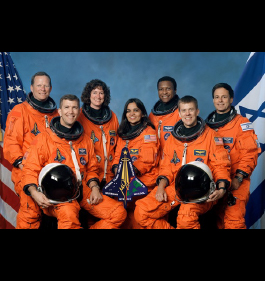
STS-107: Space shuttle Columbia was destroyed on re-entry on February 1, 2003, due to damage in one wing caused by a piece of foam that fell from the external tank during launch. The accident claimed the lives of the seven-member crew just 16 minutes before they were scheduled to land.
Image: STS-107 Crew (l-r): Mission Specialist 1 David M. Brown, Commander Rick D. Husband, Mission Specialist 4 Laurel Blair Salton Clark, Mission Specialist 2 Kalpana Chawla, Payload Commander Michael P. Anderson, Pilot William C. McCool, Payload Specialist 1 Ilan Ramon. Image Credit: NASA
Ways to Engage
If you would like to observe NASA’s Remembrance Day, here are some suggestions:
1. Reflect on crew members’ lives or study investigation details
Take in crew member biographies or learn about the investigations and conclusions for each of these calamitous losses at the NASA History site:
2. Learn more about artifacts in Cosmosphere’s collection from Apollo 1, Challenger and Columbia:
This stained glass window in Cosmosphere’s Rotunda is a memorial for the 17 astronauts lost in the Apollo I, Space Shuttle Challenger and Space Shuttle Columbia missions. It features images of the patches from the three lost missions and artifacts embedded in the glass: actual shuttle tiles from Columbia and Challenger and a wiring block from the Apollo I launch pad.
Cosmosphere visitors can recall and admire the legacy of Apollo 1 Astronaut Gus Grissom by getting an up-close view of the Liberty Bell 7 capsule he flew as only the second American in space over sixty years ago.
